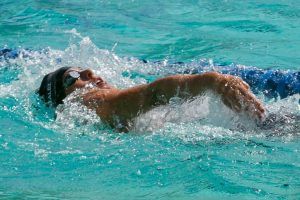
10 Motivational Swimming Quotes to Get You Fired Up
Looking for some awesome swim quotes? Give this list of motivational swimming quotes a look the next time you need to rock and roll in the pool.
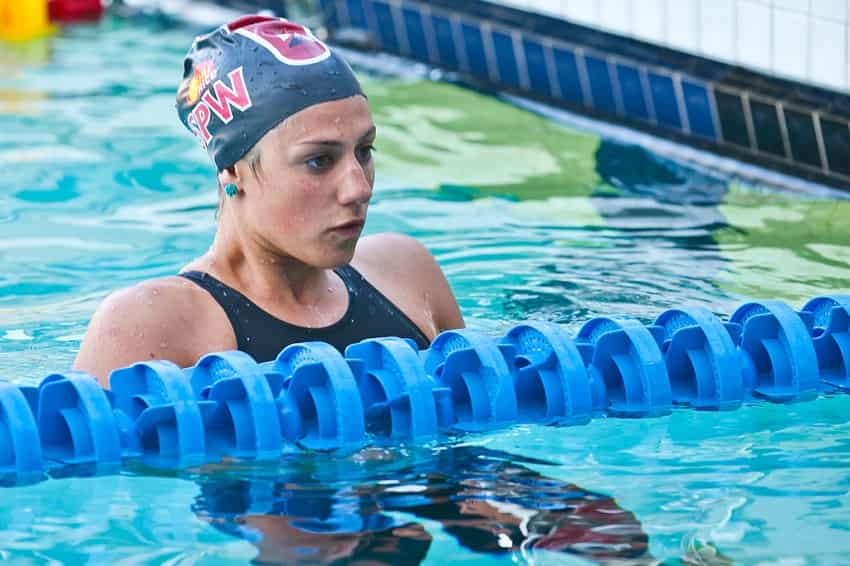
Fast swimming starts with your mindset. Here are 10 ways elite swimmers think differently.
If you ask any Olympic coach what the defining characteristic of elite swimmers is you will be told, “it’s their mindset.”
Fast swimmers possess a state of mind that is above-and-beyond that of the swimmers who talk about success and yet never chase it with any kind of conviction. (Hereafter referred to as the “slow” swimmer.)
The way they battle through setbacks. How they approach challenges. How willing they are to go the extra mile. Their ability to set goals, make a plan, and stick to it. These are the things that merge to form the mindset of an elite athlete.
Here are 10 ways that the mindset of fast swimmers is different to that of the slow swimmer:
Does this mean that fast swimmers don’t rue early mornings? That they love it when coach writes up 10x400m IM best average on the whiteboard?
No.
But they use those early mornings and those tough sets as opportunities to get better, to become better swimmers. For others, it’s punishment, a chore, simply something to be endured.
There is no guarantee of success. Ever.
Even for Michael Phelps, arguably the most gifted swimmer of our lifetime, he still had to work hard to get to where he was, and even then, there were times where he still wasn’t the fastest swimmer in the pool.
Knowing this isn’t a deterrent for the fast swimmer. But it is for the other guy/gal.
For those who aren’t as talented, or aren’t as physically gifted as the top swimmers in pool your talent must become hard work and tenacity. And this means doing extra.
Going beyond what is asked. They understand that exceptional results only happen with exceptional effort.
For your neighborhood slow swimmer, they will do the bare minimum and still expect out-sized results.
They have the big, shiny goals. Just like everybody else. But more importantly, they have benchmarks and mini-goals that they set for themselves along the way in order to keep themselves focused over the course of a long season of training.
Other swimmers make wishes, and think to themselves how nice it would be to accomplish them, if only they had the time or energy to do so.
The top swimmers in the sport know that at the end of the day they only have themselves to blame if they come up short. And because they are willing to accept responsibility for their swimming, both the good and the bad, they own their performances.
Slow swimmers look everywhere else but the mirror when things don’t go well. It’s the competition’s fault. It’s coaches fault. It’s the pool’s fault.
The swim season is long. You don’t need me to tell you that. The grind is vicious, and it is unforgiving. Through it you will experience setbacks and failures. Some large, some small, some under your control, some not.
Fast swimmers accept this as part of the process, simply things to be overcome. Slow swimmers view them as proof that they aren’t going to succeed, that difficult means impossible.
Given how limited our window of opportunity is to achieve great things in the water it is a wonder that there isn’t more urgency in the way we act.
Fast swimmers don’t wait until they feel like it, or when the mood strikes them—they act with controlled urgency.
Slow swimmers, on the other hand, sit around waiting for that ideal moment that never seems to come.
Yes, for most training is hard. Really hard.
But it’s where those best times, records and gold medals are carefully sculpted and developed. Fast swimmers understand the importance of their training, and rank it accordingly within the priorities of their life.
The slow swimmer, on the other hand, cruises through training, swimming inconsistently, doing half the work, and then expecting to be able to perform at a high level when it comes to race time.
There is a special type of patience and faith that fast swimmers have with the process of becoming great.
They know that the result they want is built slowly. They understand it takes time, it takes patience, and to believe and know that their efforts will pay off down the line.
The slow swimmer expects to see a violent and rash improvement after a couple solid efforts, and is irreparably disheartened when it doesn’t happen.
Being successful in the water is a lot of fun. Seeing your hard work pay off is rewarding. And when you have a group of swimmers who are all interested in seeing the group succeed, support each other in practice and keep each other accountable to the goals of the team, you are going to end up with a lot of fast swimming.
The slow swimmer, on the other hand, solely expects the team to support him or her. They show up to practice, complain about the sets, grumble about the workout, and create a type of cancer within the team that diminishes the team’s chances for success.

Olivier Poirier-Leroy Olivier Poirier-Leroy is the founder of YourSwimLog.com. He is an author, former national level swimmer, two-time Olympic Trials qualifier, and swim coach.
✅ Free shipping on Orders over $49
✅ Price Match Guarantee
✅ Best selection of gear for training and competition
✅ Fast and Easy Returns

“This is the best book I have ever seen concerning mental training.” — Ray Benecki, Head Coach, The FISH Swim Team


Looking for some awesome swim quotes? Give this list of motivational swimming quotes a look the next time you need to rock and roll in the pool.
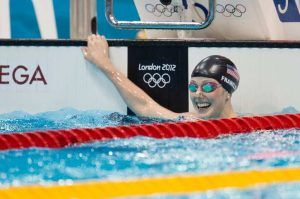
Missy Franklin’s book Relentless Spirit details the triumphs and tribulations on the path to becoming an Olympic champion. Here is a review of the book, along with key takeaways, quotes and highlights…
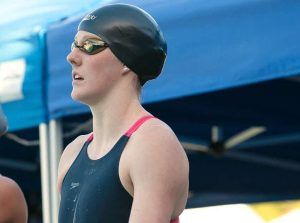
American swim star Missy Franklin captivated the world during her reign as one of the best swimmers on the planet. Here’s how she built her self-confidence going into big swim meets.
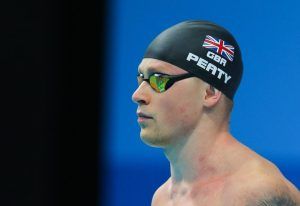
If you want to swim faster and maximize your preparation in the water, make sure you are focused on real solutions and not fake problems.
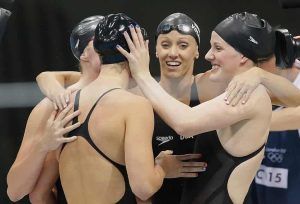
Ever wondered why some swimmers always swim ridiculously fast on relays? Here’s how the kind of motivation you use behind the blocks influences how you perform in the water.
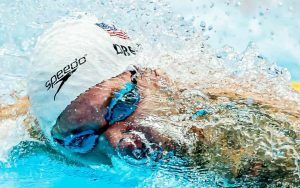
This is the ultimate guide for helping age group swimmers get highly motivated. You are going to learn about some proven techniques and tools that you can start using today to light your motivation on fire. (And keep it burning bright after that first burst of motivation fades away.) If
SITE
SHOP
GUIDES

LANE 6 PUBLISHING LLC © 2012-2025
Join 33,000+ swimmers and swim coaches learning what it takes to swim faster.
Technique tips, training research, mental training skills, and lessons and advice from the best swimmers and coaches on the planet.
No Spam, Ever. Unsubscribe anytime.
